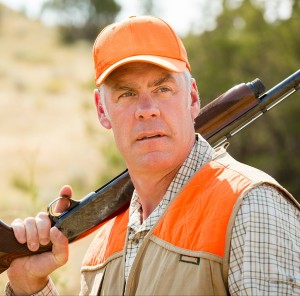One of Shakespeare’s most famous lines comes when Hamlet asks his mother how she reacts to a certain character’s effusive and flowery language, and she responds, “The lady doth protest too much, methinks.” It’s among the bard’s many lines still quoted today, this one used when someone’s overblown rhetoric seems to disguise insincerity.
That is very prevalent these days, as nearly every new Administration natural resources policy is immediately blasted by the environmental industry as a complete disaster. In many cases, the bombast is so over-the-top that it loses all credibility. All Americans care about the environment, and leaders on both sides of the aisle try to do the right thing, as they see it. Some think we can strike a careful balance between preservation of resources for the future, and use of resources for today’s economy. Others think everything man does is bad for the environment, and should be stopped. Political differences make our democracy interesting. But the accusation that anyone would purposely destroy nature, whatever side they’re on, reveals more about the accuser than the accused.
Two current examples are especially notable. First, Interior Secretary Ryan Zinke’s order to revise management plans for the greater sage grouse could undo some of the burdensome constraints created by the previous Administration. The new recommendations were compiled by an Interior task force at Secretary Zinke’s request, and call for possible loosening of restrictions near mineral leasing areas, using States’ conservation plans that are more flexible in determining where economic activity is compatible, and perhaps using increased cattle grazing in some areas as a tool to protect grouse habitat against wildfire and invasive grasses.The Secretary wrote, “I am particularly interested in assisting the states in setting sage-grouse population objectives to improve management of the species.” The order was announced last week, on a Monday, and by Tuesday was being assailed by the environmental industry as the embodiment of pure evil. “Secretary Zinke is selling out the sage grouse – and western states – to oil and gas developers,” said a lawyer from one of the largest national environmental groups. Another called it “a clear giveaway to industry that undermines years of work by Western governors, communities and stakeholders.” (In fact, the Obama-era plan was forced over the objections of most Western Governors, who were not consulted about it.)
What they should have said was, “Secretary Zinke wants to conserve sage grouse, and so do we, but we just have a different view of how to do that. We wish he would leave in place the Obama-era restrictions that we helped write, so we’re disappointed that our own strategy might not prevail.” But that doesn’t get the membership up in arms, and convince donors to write checks. Only cries of impending doom accomplish that goal. Thus the rhetoric: “Selling out the west! No more beautiful places and no more wildlife! Sage grouse wiped out for filthy windfall profits!”
Another current example is the Interior Department’s proposed repeal of the Obama BLM’s rule against fracking, which environmental groups are already blasting.
Fracking, and other aspects of oil and gas drilling, are regulated by all States and are subject to numerous federal laws, too. That’s why a federal judge ruled that BLM overstepped its authority in issuing the rule (“Oil and Gas: Hydraulic Fracturing on Federal and Indian Lands”) in 2015. The anti-fracking rules were “stayed” by the court pending trial, so were never implemented. So now, Interior recommends rescinding the regulation instead of trying to defend it in court, saying “it is unnecessarily duplicative of state and some tribal regulations and imposes burdensome reporting requirements and other unjustified costs on the oil and gas industry.”
The proposed repeal is subject to public comment, and it is generating plenty.
“This is another cynical move by the Trump Administration that sacrifices our public lands and public safety as a favor to the oil and gas industry,” said an attorney for EarthJustice, the Sierra Club’s law firm. Another, with the Center for Biological Diversity, said the proposal “highlights Trump’s desire to leave our beautiful public lands utterly unprotected from oil industry exploitation.” As if there would be no remaining rules of any kind at all.
I myself have been called a shill for the oil industry, though I’ve never worked for an energy company. I guess anything goes in politics. But calling each other names (wilderness-rapists, eco-nazis or any other) does not enlighten the conversation; it just reveals the insincere agenda of those who protest too much.
A version of this column originally appeared in the Grand Junction Daily Sentinel August 11, 2017.





Comments on this entry are closed.